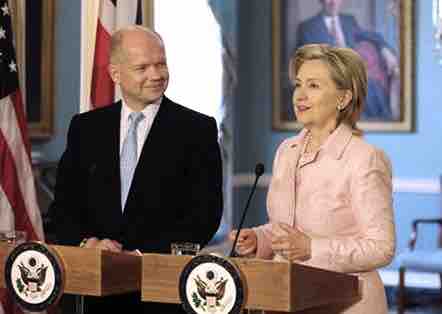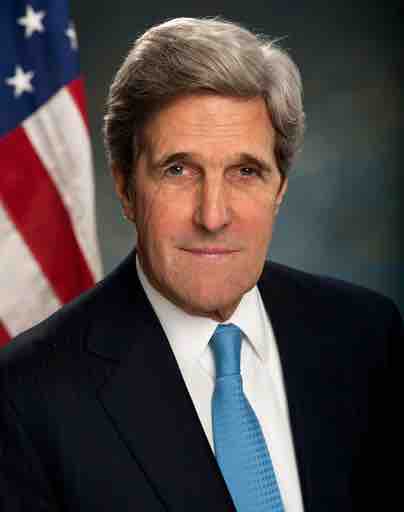Introduction
The foreign policy of the United States is the way in which it interacts with foreign nations and sets standards of interaction for its organizations, corporations and individual citizens. The global reach of the United States is backed by a $15 trillion economy, approximately a quarter of global GDP, and a defense budget of $711 billion, which accounts for approximately 43% of global military spending. The U.S. Secretary of State is analogous to the foreign minister of other nations and is the official charged with state-to-state diplomacy, although the president has ultimate authority over foreign policy; that policy includes defining the national interest, as well as the strategies chosen both to safeguard that and to achieve its policy goals. The current Secretary of State is John Kerry.
Worldwide Influence
The United States exercises global economic, political, and military influence. It is a permanent member of the United Nations Security Council, and New York City hosts the United Nations Headquarters. It is a member of the G8, G20, and Organization for Economic Co-operation and Development. Almost all countries have embassies in Washington, D.C., and many have consulates around the country. Likewise, nearly all nations host American diplomatic missions. However, Cuba, Iran, North Korea, Bhutan, and the Republic of China (Taiwan) do not have formal diplomatic relations with the United States (although the U.S. still supplies Taiwan with military equipment).
The United States has a "special relationship" with the United Kingdom and strong ties with Canada, Australia, New Zealand, the Philippines, Japan, South Korea, and Israel and several European countries such as France and Germany. It works closely with fellow NATO members on military and security issues and with its neighbors through the Organization of American States and free trade agreements such as the trilateral North American Free Trade Agreement with Canada and Mexico. In 2008, the United States spent a net $25.4 billion on official development assistance, the most in the world. As a share of America's large gross national income (GNI), however, the U.S. contribution of 0.18% ranked last among twenty-two donor states. By contrast, private overseas giving by Americans is relatively generous.
The president holds the title of commander-in-chief of the nation's armed forces and appoints its leaders, the secretary of defense and the Joint Chiefs of Staff. The United States Department of Defense administers the armed forces, including the Army, Navy, Marine Corps, and Air Force. The Coast Guard is run by the Department of Homeland Security in peacetime and the Department of the Navy in time of war. In 2008, the armed forces had 1.4 million personnel on active duty. The Reserves and National Guard brought the total number of troops to 2.3 million. The Department of Defense also employed about 700,000 civilians, not including contractors.
Military service is voluntary, though conscription may occur in wartime through the Selective Service System. American forces can be rapidly deployed by the Air Force's large fleet of transport aircraft, the Navy's eleven active aircraft carriers, and Marine Expeditionary Units at sea with the Navy's Atlantic and Pacific fleets. The military operates 865 bases and facilities abroad,and maintains deployments greater than 100 active duty personnel in 25 foreign countries.The extent of this global military presence has prompted some scholars to describe the United States as maintaining an "empire of bases. "
Criticism
Critics from the left cite episodes that undercut leftist governments or showed support for Israel. Others cite human rights abuses and violations of international law. Critics have charged that the U.S. presidents have used democracy to justify military intervention abroad. It was also noted that the U.S. overthrew democratically elected governments in Iran, Guatemala, and in other instances. Studies have been devoted to the historical success rate of the U.S. in exporting democracy abroad. Some studies of American intervention have been pessimistic about the overall effectiveness of U.S. efforts to encourage democracy in foreign nations.

Secretary of State Hillary Clinton with British Foreign Secretary William Hague
Secretary Clinton met with British Foreign Secretary William Hague in the Treaty Room at the Department of State, May 14, 2010

Secretary of State John Kerry
Having been nominated by President Barack Obama to succeed outgoing Secretary of State Hillary Rodham Clinton and then confirmed by the U.S. Senate by a vote of 94–3 on January 29, 2013, Kerry assumed the office on February 1, 2013.